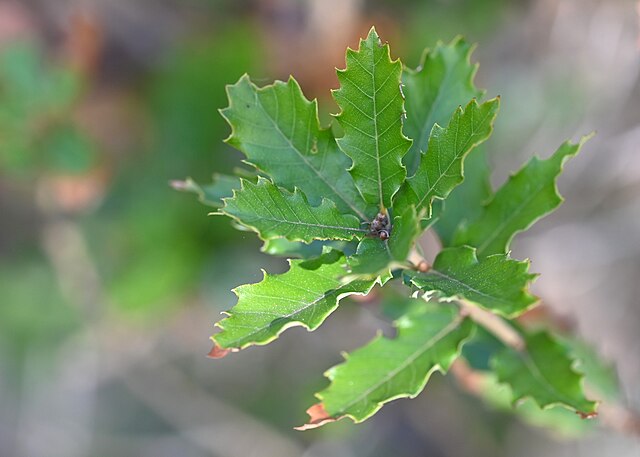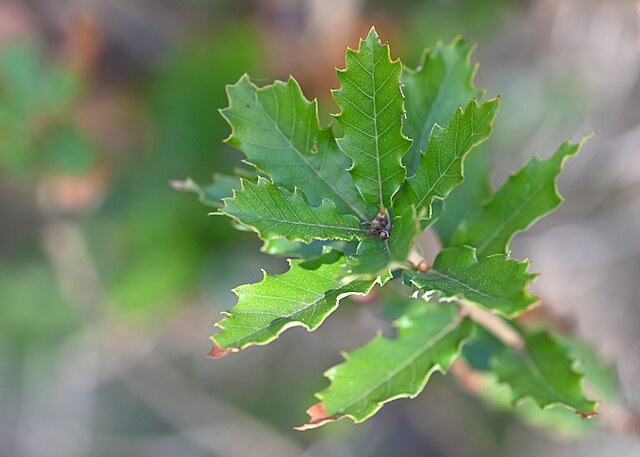Enter Your Postcode Below & Click 'Check' To See Delivery cost To Your Area
Quercus lusitanica
Quercus lusitanica
Couldn't load pickup availability
Common Name:
Portuguese Oak
Description:
Quercus lusitanica, commonly known as the Portuguese Oak, is a semi-evergreen to evergreen oak species native to the Iberian Peninsula and parts of North Africa. It is a medium to large-sized tree with a dense, rounded canopy and leathery, dark green leaves that have slightly serrated or wavy edges. Depending on the climate, it may retain its leaves year-round or shed them partially in colder conditions.
This oak is highly adaptable and thrives in a variety of soils, including sandy, loamy, and well-drained clay soils. It prefers full sun but can tolerate partial shade. Drought-resistant once established, it is well-suited for warm, Mediterranean-style landscapes, coastal areas, and parkland settings. The tree produces small acorns, which serve as an important food source for wildlife.
With its resilience, attractive foliage, and ability to withstand dry conditions, Quercus lusitanica is an excellent choice for gardens, windbreaks, and shade tree plantings.
Form:
- Tree - Medium to Large
Mature Size:
- Height: 10–20 m
- Width: 8–15 m
Aspect:
- Full Sun
- Part Shade
Flowering:
- Flowers in Spring (Inconspicuous)
Flower Colour:
- Greenish-Yellow (Catkins)
Key Attributes:
- Drought Tolerant (once established)
- Suitable for Coastal Conditions
- Wildlife Attracting (birds, squirrels)
- Suitable for Large Gardens and Parks
- Evergreen to Semi-Evergreen
Toxicity:
- Acorns contain tannins that may be mildly toxic to livestock if consumed in large quantities.
Companion Plants:
- Arbutus unedo (Strawberry Tree)
- Olea europaea (Olive Tree)
- Cistus species (Rock Rose)
- Lavandula (Lavender)
- Myrtus communis (Myrtle)

- Choosing a selection results in a full page refresh.
- Opens in a new window.

